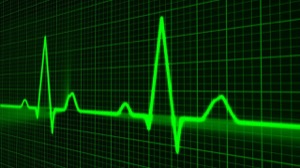
Diastolic heart failure is when the lower left chamber of the heart (left ventricle) is not able to properly fill with blood during the diastolic phase, reducing the total amount of blood pumped out into the body. The diastolic phase is when the heart relaxes and fills with blood.
When the left ventricle muscle becomes stiff or thick, diastolic heart failure is more likely to occur. The heart must increase the pressure produced inside the ventricle to fill it. This increase in pressure causes blood to build up inside the left atrium, and then in the lungs, which causes fluid congestion and symptoms of heart failure. This type of heart failure can be fatal in some cases.
As we age, our hearts and blood vessels become less elastic and stiffen. Diastolic heart failure is more common as individuals age. However, high blood pressure, diabetes, coronary artery disease, and obesity can contribute to the development of diastolic heart failure.
Diastolic Heart Failure Symptoms
The symptoms for diastolic heart failure can range from mild to severe and may include:
- Chronic fatigue
- Insomnia
- Shortness of breath
- Swelling in feet, ankles, or legs
- Persistent cough
- Dizziness
- Confusion
- Nausea
- Irregular heart beat
- Sudden weight gain
- H2: Treatments for diastolic heart failure
To determine if an individual has diastolic heart failure, they must undergo a physical exam. After a physical exam, patients may have to have additional testing that could include:
- Blood tests: A blood test checks the levels of certain fats, cholesterol, and protein in the blood that could indicate heart complications.
- X-Ray: A common imaging test.
- Echocardiogram: A type of ultrasound exam that uses soundwaves to take moving pictures of the heart and its champers.
- Electrocardiogram (EKG): This test measures the electrical activity of the heart and can help determine if parts of the heart are enlarged or damaged. Electrodes are attached to the arms, legs, and chest to check the electrical currents produced by the heart.
- Electrophysiology study: A test that records the heart’s electrical pathways and activities. This test is commonly used to discover what’s causing heart rhythm problems.
- Stress testing: This test is conducted during exercise. If an individual is unable to exercise, medication is given to increase the heart rate. When used in combination with an EKG, the test can show changes in the heart’s rate, rhythm, electrical activity, and blood pressure. Exercise causes the heart to work harder and beat faster.
Treatment
While it is impossible to prevent all types of heart failure, you can work toward lowering your risks for diseases or conditions that can lead to or complicate the condition.
- Be active: Every adult should exercise for 30 minutes every day. Moderate exercise helps circulation and decreases stress on your heart.
- Develop a healthy diet: Limiting sugar, saturated fat, cholesterol and salt can help lower your risk for heart disease. Similarly, eating plenty of fruit, vegetables, whole grains and low-fat dairy products assist a healthy heart.
- Work toward and maintain a healthy weight: Losing weight and maintaining a healthy weight relieves stress on the heart.
- Smoking: Smoking damages blood vessels, reduces the amount of oxygen in the blood, raises blood pressure and ultimately makes the heart beat faster. Reducing smoking will greatly reduce the stress on your heart and reduces your risk for heart disease.
Contact Us
Our disability insurance attorneys at Mehr Fairbanks Trial Lawyers have helped numerous long-term disability claimants that have been unable to work as a result cardiac conditions. If your claim has been denied, we are able to assist you and make the claim process as easy as possible for you. Call toll free at 800-249-3731 today.
